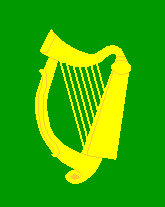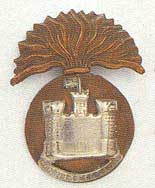



|
 |

|
This Webpage is to commemmorate Lt Benjamin Watson of the 7th Battalion, Royal Inniskilling Fusiliers, aged 20, who died of wounds on 17th June 1916. His company commander, Major A D Reid, wrote to his parents, the Reverend Thomas S and Anna C Watson of The Rectory, Carrickmacross, Co. Monaghan. His letter is reproduced below.
The original manuscript of the letter, written by Major Reid in the issue Army Book 152, a triplicate Correspondence Book (Field Service), is in the possession of James Bourhill in South Africa. Presumably one of the other two copies was typed up for dispatch to the next-of-kin.
The months of June, July and August 1916 were, for the 16th Irish Division, spent in the Hulluch sector. The commander of the First Army, of which the 16th Irish Division formed a part, Sir Charles Munro, was a keen proponent of the offensive spirit and had stated that the losses incurred in raids were a small price to pay for the maintenance of morale. Unfortunately the losses on the many raids, whilst small in comparison with what was to come on the Somme, led to the deaths, out of proportion, of many able leaders, officers and NCOs. These severe and irreplaceable losses were suffered on often futile 'stunts'. Maybe the action in which Benjamin Watson was fatally wounded was one of these.
Lt Watson is buried in Philosophe British Cemetery, Mazingarbe, Pas de Calais, France, Grave Reference: I. F. 26. This cemetery is the last resting place of many of the early casualities of the 16th Irish Division, sustained during its first stint in the front line in 1916. In his letter Major Reid (later Lt Col) mentions the 'battalion burying ground'.
 |
28/7/16 Dear Sir It was my duty to have written to you a month ago when your son 2nd LIEUT. WATSON most unfortunately died from wounds received in action on the 16th June. I am sorry that there has been this delay, but I feel that you will be glad to hear from me, who was his company commander during the time he was in the 7th Inniskillings and who was with him soon after he was wounded. Your son had many good qualities and had the makings of a good officer. I had picked him out of the subalterns of the company to take charge of a special party that was being trained for a special purpose. He was very cool headed and had plenty of pluck. On the night in question he was in charge of a party that had been sent out to blow in the enemy's wire entanglements. He led his party right up to the German wire, but was forced to bring them back owing to a superior force of the enemy making an attempt to get round him. He withdrew successfully, but as he himself reached our wire, being at the rear of his party and seeing that all got in safely, he was hit by a hand grenade in the legs and had to be carried in. When I saw him, he made light of it and said "Oh I am allright". At the time I did not think the wound was serious. A doctor was on the spot and dressed his wounds and he was carried straight to the field dressing station and thence to the hospital with little delay. He had therefore a better chance than many who have to lie all day in the dressing station before they can be got away. Unfortunately, it was found necessary to amputate his leg - but already owing to loss of blood and shock, the doctors say he was sinking. The other officers of the company and his own platoon and myself were present at his funeral, performed according to the rites of his church in the battalion burying ground. We all regret his loss in the battalion. You will be proud to know though so young an officer, he behaved most gallantly. AD Reid (Major) |  |